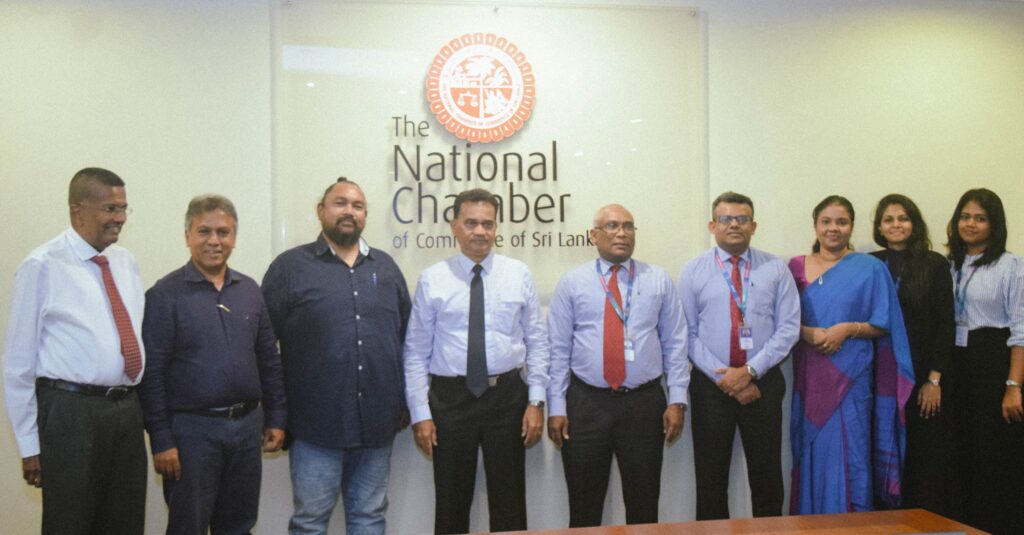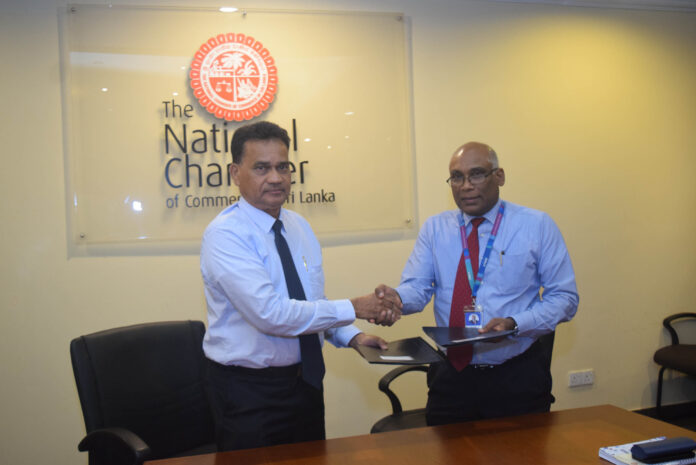By: Staff Writer
April 10, Colombo (LNW): Sri Lanka Small and medium scale enterprises (SMEs), comprising trade, service, and manufacturing, put in a large proportion of revenue, employment, and innovation to the economy are to be reinvigorated through capacity building.
SMEs make up for 52 percent of the GDP and 45 percent of national employment, contributing, perhaps, the largest portion to the economy.
While more effective Government involvement is required, the SME sector entrepreneurs continuously insist that such State backing is not satisfactory for their survival and growth
Therefore the National Chamber of Commerce of Sri Lanka (NCCSL) and KPMG Sri Lanka have officially signed a Memorandum of Understanding (MOU) aimed at fostering knowledge sharing and collaborative endeavors for the benefit of this sector.
This landmark agreement marks a strategic collaboration between two influential organizations, poised to catalyze numerous joint initiatives.
The primary objective of this MOU, where KPMG Sri Lanka will be onboard as a Knowledge Partner, and to strengthen the services to the MSME sector through capacity building and training initiatives which would facilitate trade and investment activities within the respective business communities.
Additionally, both entities are committed to nurturing commercial and industrial linkages among their members, thereby fostering a conducive environment for sustainable growth.
By recognising the importance of SMEs and implementing targeted policies and interventions, Sri Lanka can unlock the full potential of these enterprises and harness their contributions to national development.
Through improved access to finance, streamlined regulations, enhanced skills development, and expanded market opportunities, SMEs can thrive and play a transformative role in driving inclusive growth and prosperity across the country
This MoU contains a detailed framework for mutual cooperation with a view of supporting Sri Lankan entrepreneurs in their efforts towards accelerating sustainable economic growth.
However, the common view of the banks is that they are releasing as many as loans possible for SMEs under the guidance of the bank supervision department of the Central Bank.
However, the temporary suspension of the “Parate Executions” until December 2024 has met with stiff resistance from the banking sector. This can further complicate loan processes and the lenders are most likely to enforce stricter measures on collateral.
Addressing this challenge requires the development of specialised financial products tailored to the needs of SMEs, as well as initiatives to promote alternative sources of funding such as venture capital and promoting angel investors.
Regulatory burdens are another challenge SME sector often confronts, particularly at the start-up stage. SMEs often face these regulatory inconveniences, including complex licensing procedures, cumbersome compliance requirements, and more severely bureaucratic red tape.
Hence, the authorities must seriously consider the ongoing difficulties and introduce more business-friendly and streamlined regulatory processes, reducing administrative barriers, and enhancing regulatory transparency.


